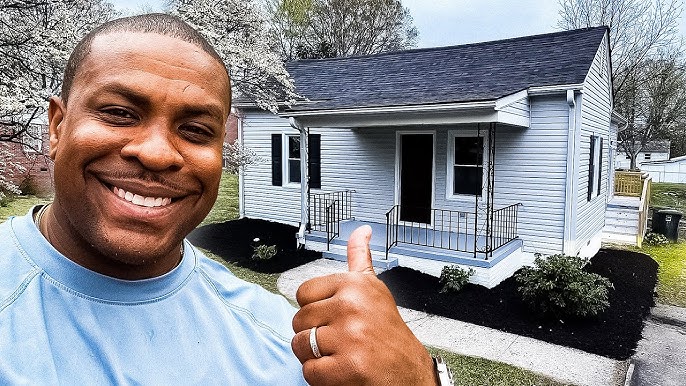The Ultimate Guide to Home Equity Loans: What You Need to Know
As a homeowner, you may have heard of home equity loans and how they can provide you with a source of funding for various purposes. However, you may not fully understand what they are, how they work, and whether they are the right choice for you. In this ultimate guide to home equity loans, I will explore everything you need to know about these loans, from their advantages and disadvantages to their eligibility criteria and application process.
Introduction to Home Equity Loans
A home equity loan is a type of loan that allows you to borrow money against the equity you have built up in your home. Equity refers to the difference between your home’s market value and the outstanding balance of your mortgage. For instance, if your home is worth $500,000 and you still owe $300,000 on your mortgage, your equity is $200,000.
A home equity loan provides you with a lump sum of money that you can use for various purposes, such as home renovations, debt consolidation, education expenses, or any other major expenses. The loan is secured by your home, which means that if you fail to repay the loan, the lender can foreclose on your home to recover their money.
What is a Home Equity Loan?
A home equity loan is a second mortgage on your home that allows you to borrow against your home equity. The loan is typically provided as a lump sum of money that you repay over a fixed period, usually between 5 and 30 years. Home equity loans are also known as second mortgages because they are subordinate to your primary mortgage, which means that in case of default, the primary mortgage is paid off first, and the remaining funds go towards the home equity loan.
The amount you can borrow with a home equity loan depends on your home’s equity, your credit score, and the lender’s guidelines. Typically, lenders allow you to borrow up to 80% to 90% of your home’s equity, minus the outstanding balance of your mortgage.
How do Home Equity Loans Work?
Home equity loans work similarly to traditional mortgages, but with a few key differences. When you apply for a home equity loan, the lender will evaluate your credit score, income, debt-to-income ratio, and home equity to determine your eligibility and the loan’s terms.
If you are approved for a home equity loan, you will receive a lump sum of money that you can use for any purpose. You will then repay the loan over a fixed period, usually with a fixed interest rate and monthly payments. The interest rate on a home equity loan is typically higher than the interest rate on a primary mortgage because it is a second mortgage and carries more risk for the lender.
Types of Home Equity Loans
There are two main types of home equity loans: fixed-rate loans and adjustable-rate loans.
Fixed-Rate Loans
A fixed-rate home equity loan provides you with a lump sum of money that you repay over a fixed period, usually with a fixed interest rate and monthly payments. This type of loan is ideal if you want predictable payments and a fixed interest rate that won’t change over the life of the loan.
Adjustable-Rate Loans
An adjustable-rate home equity loan provides you with a lump sum of money that you repay over a fixed period, but with an interest rate that can change over time. This type of loan is ideal if you want a lower initial interest rate and are comfortable with the risk of the interest rate increasing in the future.
Advantages of Home Equity Loans
Home equity loans offer several advantages over other types of loans, such as personal loans or credit cards.
Lower Interest Rates
Home equity loans typically have lower interest rates than other types of loans because they are secured by your home. This means that the lender has less risk and can offer you a lower interest rate.
Large Loan Amounts
Home equity loans allow you to borrow a large sum of money, usually up to 80% to 90% of your home’s equity, minus the outstanding balance of your mortgage.
Tax Deductible Interest
The interest you pay on a home equity loan may be tax-deductible, depending on your individual circumstances. Consult your tax advisor to determine your eligibility.
Disadvantages of Home Equity Loans
While home equity loans offer several advantages, they also have some disadvantages that you should be aware of before applying.
Risk of Foreclosure
Home equity loans are secured by your home, which means that if you fail to repay the loan, the lender can foreclose on your home to recover their money.
Fees and Closing Costs
Home equity loans come with fees and closing costs, such as appraisal fees, origination fees, and title search fees. These costs can add up quickly and increase the overall cost of the loan.
Longer Repayment Term
Home equity loans typically have longer repayment terms than other types of loans, usually between 5 and 30 years. This means that you will be paying interest for a longer period and may end up paying more in interest over the life of the loan.
Eligibility Criteria for Home Equity Loans
To be eligible for a home equity loan, you must meet certain criteria, such as:
Sufficient Home Equity
You must have sufficient equity in your home to borrow against. Generally, lenders require that you have at least 20% equity in your home.
Good Credit Score
Lenders prefer borrowers with a good credit score, usually 620 or higher.
Stable Income
Lenders prefer borrowers with a stable source of income to ensure that they can repay the loan.
Low Debt-to-Income Ratio
Lenders prefer borrowers with a low debt-to-income ratio, usually below 43%.
Read More: Smart Strategies for Paying Off Your Car Loan Faster and Saving Money
Home Equity Loan Rates and Fees
Home equity loan rates and fees vary depending on the lender, your credit score, and the loan amount. Generally, home equity loan rates range from 3% to 12%, depending on the loan term, amount, and interest rate type.
In addition to interest rates, home equity loans come with fees and closing costs, such as appraisal fees, origination fees, title search fees, and others. These costs can add up to thousands of dollars and increase the overall cost of the loan.
Home Equity Loan vs. Home Equity Line of Credit
A home equity loan and a home equity line of credit (HELOC) are both types of loans that allow you to borrow against your home’s equity. However, they differ in several ways.
Home Equity Loan
A home equity loan provides you with a lump sum of money that you repay over a fixed period, usually with a fixed interest rate and monthly payments. This type of loan is ideal if you want predictable payments and a fixed interest rate that won’t change over the life of the loan.
Home Equity Line of Credit
A home equity line of credit (HELOC) provides you with a revolving line of credit that you can draw from as needed, up to a certain limit. You only pay interest on the amount you borrow, and you can repay and reuse the funds over the life of the loan. This type of loan is ideal if you want flexibility and the ability to borrow as needed.
How to Apply for a Home Equity Loan
To apply for a home equity loan, follow these steps:
- Determine your home equity: Calculate your home’s market value and subtract your outstanding mortgage balance to determine your available equity.
- Check your credit score: Obtain your credit score and credit report to ensure that you meet the lender’s credit requirements.
- Research lenders: Research lenders that offer home equity loans and compare their rates, fees, and terms.
- Gather required documents: Gather required documents, such as proof of income, proof of homeownership, and other financial documents.
- Complete the application: Complete the lender’s application and submit the required documentation.
- Wait for approval: Wait for the lender to review your application and approve or deny your loan request.
Home Equity Loan Alternatives
If a home equity loan is not the right choice for you, consider these alternatives:
Personal Loans
Personal loans are unsecured loans that you can use for various purposes, such as debt consolidation, home renovations, or major expenses. They typically have higher interest rates than home equity loans but do not require collateral.
Credit Cards
Credit cards allow you to borrow money on a revolving basis and typically have higher interest rates than home equity loans. They are ideal for smaller expenses or emergencies.
Cash-Out Refinance
A cash-out refinance allows you to refinance your primary mortgage and borrow against your home’s equity. This type of loan may offer a lower interest rate than a home equity loan but may also have higher closing costs.
Home Equity Loan FAQs
What is the difference between a home equity loan and a home equity line of credit?
A home equity loan provides you with a lump sum of money that you repay over a fixed period, while a home equity line of credit provides you with a revolving line of credit that you can draw from as needed.
How much can I borrow with a home equity loan?
You can typically borrow up to 80% to 90% of your home’s equity, minus the outstanding balance of your mortgage.
How long does it take to get a home equity loan?
The time it takes to get a home equity loan varies depending on the lender and your individual circumstances. Generally, it takes between 2 and 6 weeks to complete the application process.
Is the interest on a home equity loan tax-deductible?
The interest you pay on a home equity loan may be tax-deductible, depending on your individual circumstances. Consult your tax advisor to determine your eligibility.







